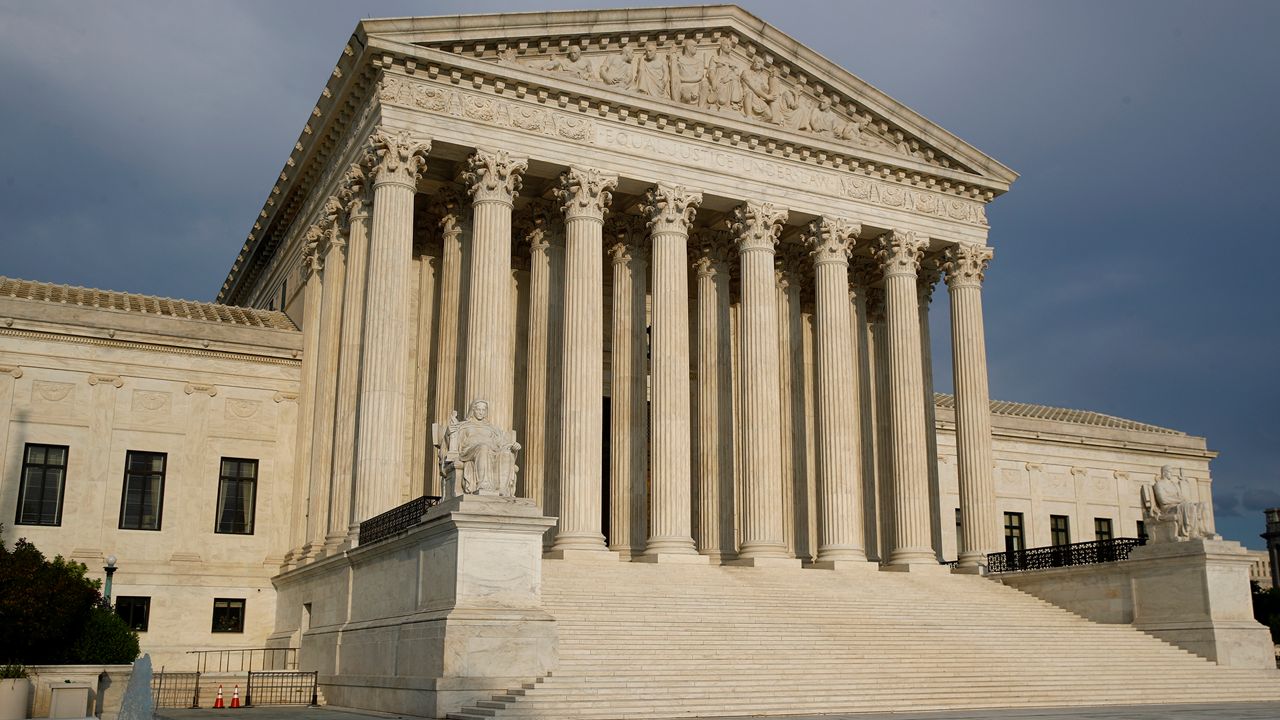The Supreme Court has agreed to take up a major abortion case in its next term which could challenge the landmark rulings in Roe v. Wade and Planned Parenthood v. Casey.
The case, Dobbs v. Jackson Women's Health, challenges Mississippi's ban on most abortions after 15 weeks.
The decision by the nation's highest court, with its 6-3 conservative majority, sets up a major showdown over abortion, which will likely come in the fall. The case will be the first argued since Justice Amy Coney Barrett was confirmed to the bench, providing a pathway to dramatically alter the landmark 1973 decision in Roe v. Wade, which protected a woman's constitutional right to an abortion.
The decision in Roe was upheld 19 years later in Planned Parenthood v. Casey.
Mississippi's 15-week abortion ban, which the state's former Republican Gov. Phil Bryant signed into law in 2018, was struck down by a federal judge in 2018, a ruling which was upheld by a federal judge in 2019.
The nation's highest court ruled last year in a 5-4 decision to strike down a Louisiana abortion law, with Chief Justice John Roberts siding with the court's liberal majority, which included the late Justice Ruth Bader Ginsburg. Roberts argued the restrictions were virtually identical to a Texas law the court struck down in 2016.
But with Ginsburg's replacement by Justice Barrett, solidifying the court's right-leaning majority, the future of abortion rights could be in question. Barrett is the most open opponent of abortion rights to join the court in decades.
While the case does not explicitly seek to overturn Roe, supporters of abortion rights worry that this case could pose a danger to the nearly 50-year-old ruling.
“Alarm bells are ringing loudly about the threat to reproductive rights,” Nancy Northup, president of the Center for Reproductive Rights, said in a statement, adding: "The consequences of a Roe reversal would be devastating."
At a press briefing on Monday, White House press secretary Jen Psaki said that President Joe Biden is "committed to codifying" Roe v. Wade.
While offering no specific comment on the Supreme Court deciding to take up the case, Psaki said that "over the last four years critical rights like the right to healthcare and the right to choose have been under withering and extreme attack, including through draconian state laws."
"The president and the vice president are devoted to ensuring that every American has access to health care, including reproductive health care, regardless of their income, zip code, race, health insurance status or immigration status," she continued. "As such, the president is committed to codifying Roe" regardless of the outcome of the case.
The Mississippi law was enacted in 2018, but was blocked after a federal court challenge. The state’s only abortion clinic remains open. About 10% of its abortions are done after the 15th week, said Shannon Brewer, the clinic director at Jackson Women’s Health Organization.
The case is separate from a fight over laws enacted by Mississippi and other states that would ban most abortions when a fetal heartbeat is detected. Mississippi also is among 11 states with a total abortion ban waiting to take effect if the Supreme Court overturns its Roe decision, according to NARAL Pro-Choice America.
A central question in the case is about viability — whether a fetus can survive on its own at 15 weeks. The clinic presented evidence that viability is impossible at 15 weeks, and the appeals court said that the state “conceded that it had identified no medical evidence that a fetus would be viable at 15 weeks.” Viability occurs roughly at 24 weeks, the point at which babies are more likely to survive.
But the state argues that viability is an arbitrary standard that doesn’t take sufficient account of the state’s interest in regulating abortion.
The Mississippi law would allow exceptions to the 15-week ban in cases of medical emergency or severe fetal abnormality. Doctors found in violation of the ban would face mandatory suspension or revocation of their medical license.
The Associated Press contributed to this report.



